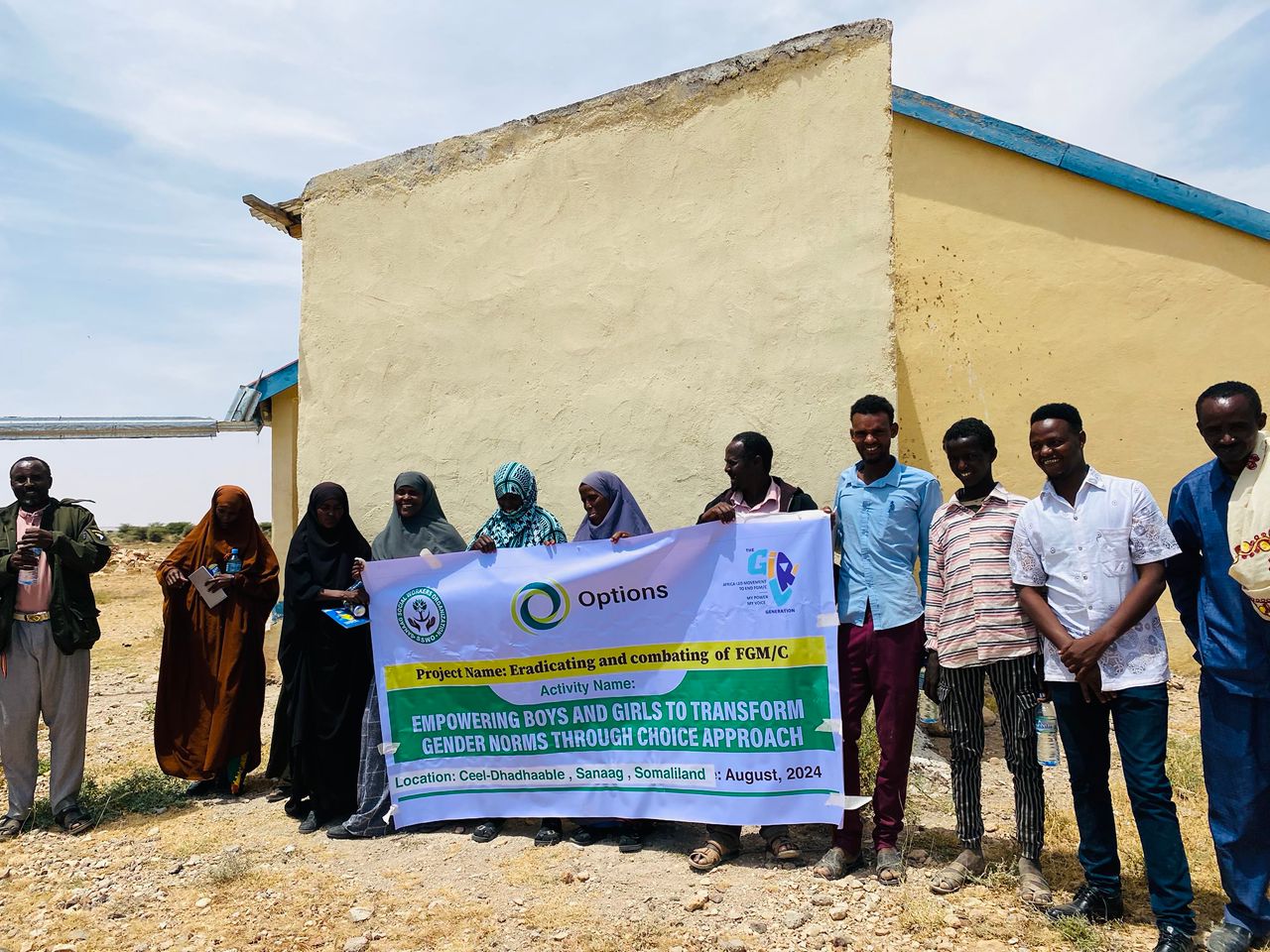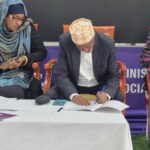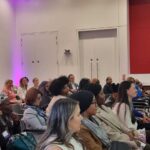Figure 1 An activity conducted in Ceel-dhadhaable located in Sanaag region
In our collective efforts to end Female Genital Mutilation/Cutting (FGM/C), organizations across Somaliland are taking action through innovative grassroots initiatives. From small community-based groups to established anchor organizations, these grantees are making strides, creating awareness, and changing attitudes toward FGM/C. This is their story.
SSWO: Empowering Youth to Champion Change (Small Grantee)
Figure 1 An activity conducted in Ceel-dhadhaable located in Sanaag region
For Maxamed siciid and his team, the grant application process was straightforward. “The instructions were clear, and the process was easy,” he says, reflecting on the simplicity of accessing the much-needed support for their work.
One standout approach they’ve employed is empowering boys and girls to influence change within their families, using a choice-driven approach. “The youth are open to change and have been key in moving the conversation forward.”
SSWO showcases its progress by sharing updates through platforms like Facebook and Twitter, but Maxamed siciid acknowledges the need for more capacity-building in project management and communication. “We’d love more partnerships and training to strengthen our impact.”
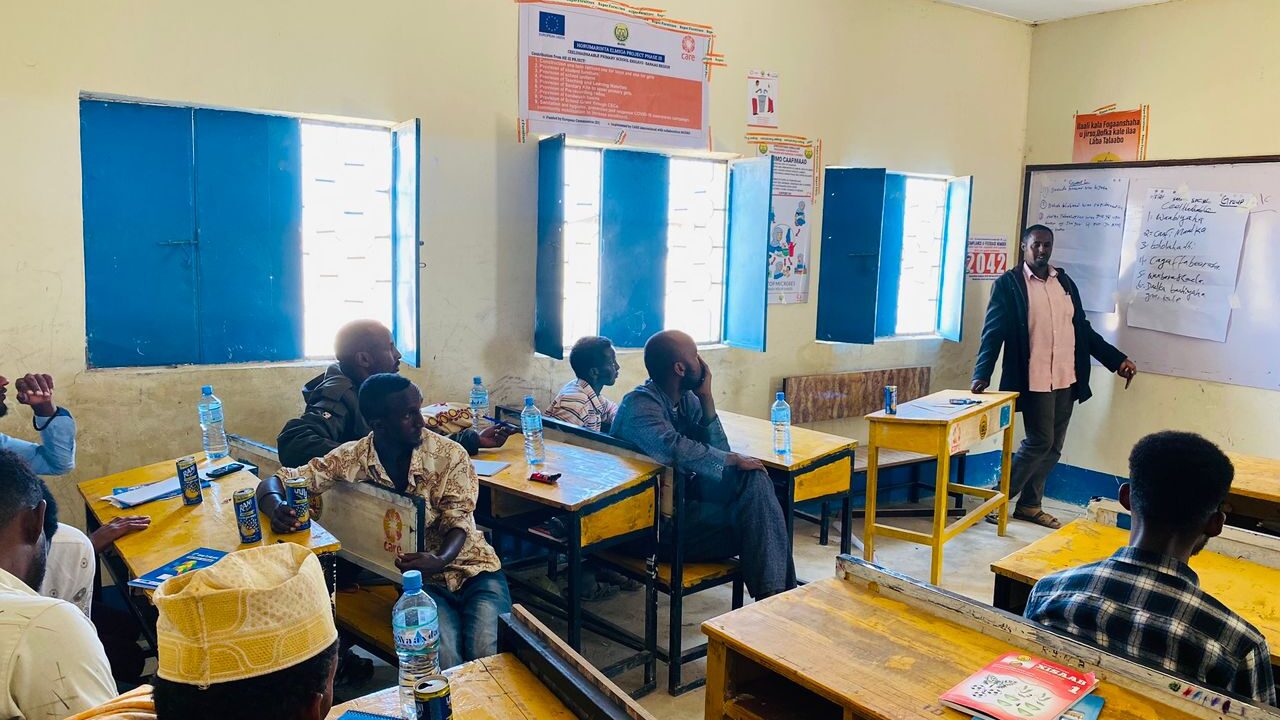
Figure 2 An activity conducted in Ceel-dhadhaable located in Sanaag region
Human Rights Development Organization (HRDO): Theater and Advocacy at the Heart of Change (Medium Grantee)
Operating across three key regions—Galcayo, Shaf, and El Lahelay—HRDO brings creativity to advocacy. “We’ve held stakeholder engagements, capacity-building sessions, and even theatre dramas to raise awareness,” Khadar Mariano shares.
One of their most impactful activities has been community-led theatre programs. “Drama allows us to reach large groups, spreading our message to 150 people at a time. It creates conversations that linger well beyond the events,” he adds.
Though their efforts initially faced resistance, persistent outreach, and stakeholder engagement helped build trust. “Community members were hesitant at first, but they came around once they saw we were working for their good—not against their culture.”
The organization takes pride in putting women and girls at the heart of its programs. “Our projects challenge male-dominated decision-making by empowering women to lead,” Khadar Mariano explains.
While HRDO actively shares its achievements through social media, Khadar Mariano highlights a gap: “We don’t have a website yet, and we’d really benefit from capacity-strengthening support to enhance our reach.”
Y-PEER Organization: The Anchor in the Movement: Capacity Building and Community Empowerment (Anchor Grantee)
As an anchor organization, Y-PEER leads a comprehensive approach to capacity-building for small and medium grantees. “Once the assessment report arrives, we can identify gaps and begin tailored capacity-building initiatives to strengthen each organization,” explains Faduumo Abdirizak. Y-PEER emphasizes the importance of involving women directly in program design, ensuring their voices shape project activities and priorities.
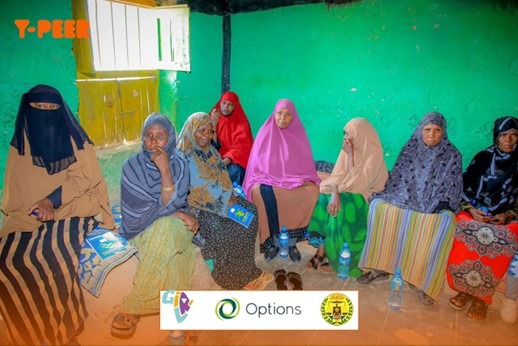
One of the organization’s key successes has been creating a safe environment for open discussions about gender violence, FGM/C, and youth empowerment. “We’re seeing dialogues emerge in communities between boys and girls, women and men—these are conversations that weren’t happening before,” Faduumo Abdirizak notes. In just six months, they’ve observed a shift, with young people and women becoming more comfortable speaking up on sensitive issues.
To celebrate and share these milestones, Y-PEER leverages social media, sharing success stories on platforms like Facebook, Instagram, and TikTok (with participant consent). “We use our network to amplify our achievements, helping us reach a wider audience and keep the momentum going,” Faduumo Abdirizak adds.
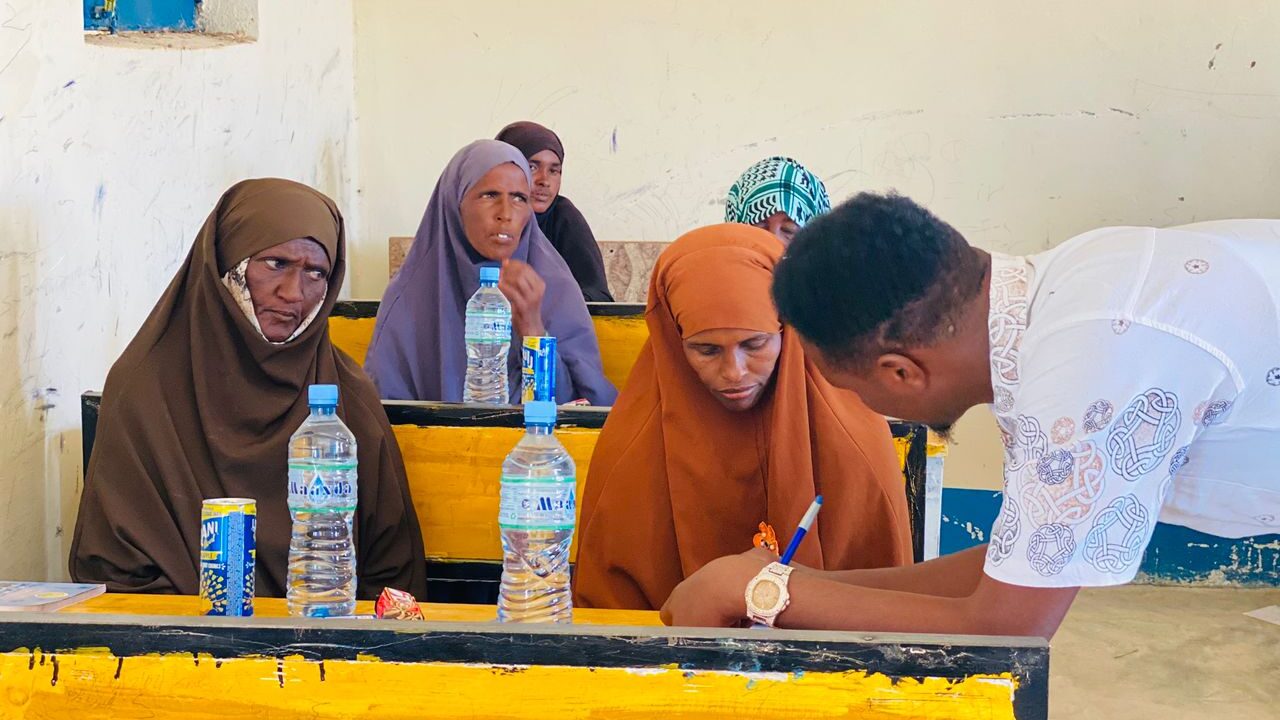
Figure 4 Selecting and training influential and female champion to end of FGM/C Erigavo Distracts
Y-PEER is committed to evaluating the support needs of partner organizations post-assessment, aiming to strengthen their impact through training and resources as necessary.
Conclusion: A Movement Gaining Momentum
From empowering youth to staging community dramas, the efforts of these grantees reflect the power of locally driven solutions and advocacy. While challenges remain, collaboration, creativity, and capacity building are proving to be critical tools in the journey toward an FGM-free future in Somaliland.
As Maxamed siciid from SSWO says, “The youth are ready for change.” With organizations like HRDO and Y-PEER providing essential support, particularly through capacity-building and safe, inclusive spaces for dialogue, these grantees are creating lasting impact. The combined efforts of small, medium, and anchor organizations drive the movement forward, showing that together, the mission to end FGM/C grows stronger with each initiative and conversation sparked.

